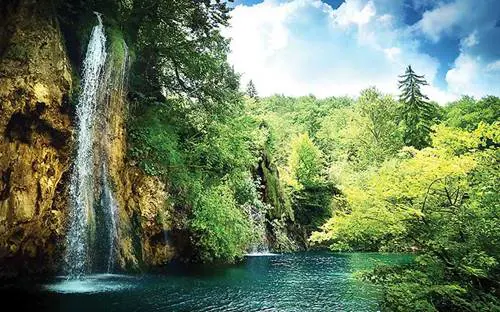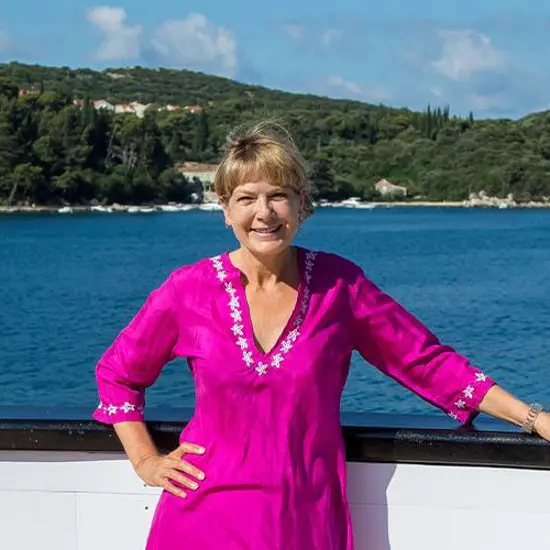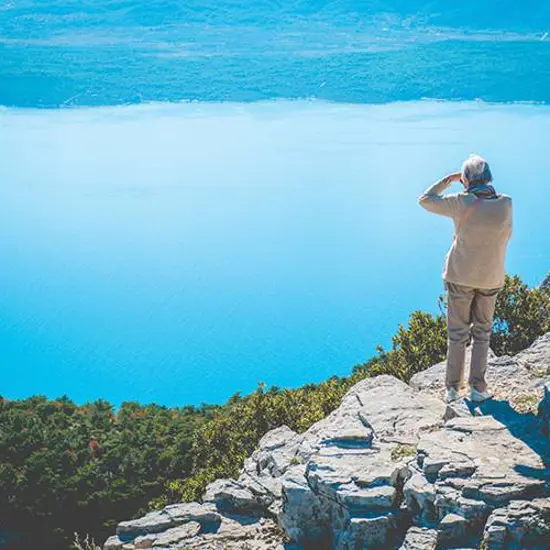11. Croatia's tallest peak is Dinara Mountain
Dinara Mountain is a favourite among hikers and lovers of the outdoors for its magnificent views. The peak of the mountain is an impressive 1,831 metres, or just over 6,000 feet.
12. Nikola Tesla was a famous Croatian inventor
Nikola Tesla, the ingenious inventor and engineer, was born in 1856 in the village of Smiljan, which is now located in Croatia. Today, visitors can explore his childhood home, which has been converted into a museum.
13. Croatia declared independence in 1991
On June 25, 1991, Croatia took a momentous step by declaring its independence from Yugoslavia. This pivotal decision set off a chain of events that have shaped the country's recent history.
14. Croatia had a brutal war for independence
Following its declaration of independence in 1991, Croatia became embroiled in a tumultuous conflict known as the Croatian War of Independence. This war was driven by the desire for territorial control and autonomy.
15. Croatia has a wealth of national parks
Croatia is home to eight stunning national parks, each showcasing distinct landscapes and ecosystems. From the enchanting Plitvice Lakes waterfalls to the peaceful Brijuni islands, these parks capture the natural beauty of Croatia.

16. Croatians are famously multilingual
Due to Croatia's rich historical background, geographical location, and cultural connections, the country has many bilingual and even multilingual people. Proficiency in languages such as Italian, German, and English is common.
17. The sea in Zadar sings
The Sea Organ in Zadar is a brilliant fusion of architectural design and the beauty of nature. It harnesses the power of crashing waves through submerged tubes to create enchanting melodies, turning the coastal area into a delightful symphony.
Relax to the soothing sounds of the Sea Organ at sunset from the comfort of your exclusive cruise on our Croatia Uncovered tour.
18. Croatia used to be part of Yugoslavia
Croatia was one of the republics that made up the Socialist Federal Republic of Yugoslavia from the end of the First World War until the early 1990s. During this time, Croatia experienced significant changes in its political, cultural, and economic spheres.
19. Croatia was under Nazi rule in World War II
Croatia was under the rule of a fascist and ultranationalist organisation called the Ustaše during the Second World War. The Ustaše established the Independent State of Croatia and formed alliances with Nazi Germany and fascist Italy.
20. Croatia has one of the oldest inhabited cities
Nestled within Croatia's borders is Šibenik, a city that boasts a remarkable distinction as one of the world's oldest continuously inhabited urban centres. For over a thousand years, people have called the coastal settlement of Šibenik their home.

21. Rijeka was European Capital of Culture in 2020
Rijeka received the prestigious designation of European Capital of Culture for 2020, recognising its rich cultural heritage and historical importance. This distinction celebrates the city's vibrant artistic community, enchanting musical traditions, and compelling landmarks.
22. Dalmatian dogs originated in Croatia
Dalmatian dogs are well-known for their unique coat pattern of black spots. They originally come from the Dalmatia region in Croatia and have been bred for various roles throughout history.
23. Croatia receives 2,700 annual sunlight hours
Croatia's coastal regions have a delightful Mediterranean climate, with approximately 2,700 hours of sunshine annually. Locations such as Hvar and Split are particularly famous for their plentiful sunshine.
24. Croatia has a version of the Great Wall of China
The Walls of Ston, often referred to as the European Wall of China, are an impressive system of stone defensive walls situated in southern Croatia. These expansive fortifications stretch for an astonishing 5.5 kilometres or nearly 3.5 miles.
25. Croatia has an exceptional literacy rate
Education has always been important in Croatia, as demonstrated by an impressive literacy rate of more than 99%. This positions Croatia among the top-ranking countries worldwide in terms of education and literacy.
26. Croatia's currency had a unique name
Since the beginning of 2023, Croatia has been using the euro. Prior to this, the Croatian currency was the kuna, and it got its name from the Croatian word for marten, a small mammal similar to a weasel. Marten pelts were once commonly used for trade and payment.
27. Croatia has the tiniest village
Nestled in the Istrian Peninsula, Hum is renowned as the smallest town worldwide. With just around 20 residents, this enchanting village has retained its medieval charm with its ancient fortifications and picturesque cobblestone streets.
28. Croatia has an island of love
Galešnjak, known as Lover's Island, has captivated couples around the globe with its naturally formed heart shape. Situated in the Adriatic Sea, this romantic island has become a symbol of romance.

29. Parts of Game of Thrones were filmed in Croatia
The popular television series Game of Thrones garnered worldwide praise and showcased stunning locations across Croatia. Of these, Dubrovnik stood out as the picturesque backdrop for King's Landing.
30. Croatia had a record-breaking white truffle discovery
In 1999, Croatia gained recognition among truffle enthusiasts with the remarkable discovery of a white truffle weighing 1.31 kilograms that was unearthed in the Istria region.
Explore Croatia with Travelsphere
Discover the captivating wonders of Croatia with Travelsphere. All our guided tours offer a carefully curated fusion of history, geography, and culture that will transport you to an enchanting world. Immerse yourself in authentic experiences as you go deep into the essence of this mesmerising country, creating memories that will stay with you forever.
Our guided tours give you many options for a wonderful expedition through this gorgeous country, with walking tours, excursions, meals, and fantastic accommodation, all designed to make your holiday, a holiday of a lifetime. Discover the renowned walled city of Dubrovnik in Croatia, along with the bays and medieval towns of Montenegro, while you absorb the best of Croatian culture. Or, try our Croatia Island Hopping tour to soak in the sights of the country’s famously alluring coastline, taking in Mljet National Park and charming fishing villages. Your unforgettable experience awaits.


















